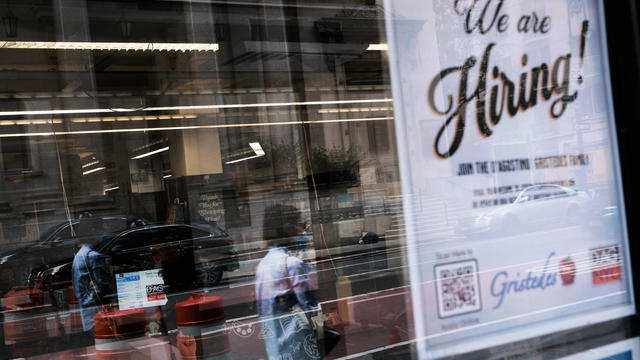Jobless applications fall to another pandemic-era low despite Delta spread

Jobless applications fall to another pandemic-era low despite Delta spread
The number of people applying for first-time jobless aid has dropped to another pandemic-era low, showing the labor market continues to heal despite the spread of coronavirus variants.
The Labor Department reported that some 310,000 people filed initial unemployment claims last week, the lowest number since the pandemic began in March 2020. Another 96,000 people applied for Pandemic Unemployment Assistance, a special federal program for the self-employed and gig workers — the last week they were eligible for such support.
“[T]he steady drop in claims shows that employers increasingly won’t let go of employees once they have them,” Robert Frick, corporate economist at the Navy Federal Credit Union, said in a note.
Initial claims for jobless aid have fallen steadily this year since peaking above 1 million a week in January. But the spread of the Delta variant this summer has put renewed pressure on the economy and the job market.
Indeed, the Federal Reserve on Wednesday reported that U.S. economic activity “downshifted” in July and August, in part because of a pullback in dining out, travel and tourism related to concerns about the hyper-infectious Delta variant. And last month, hiring dropped in industries that require face-to-face contact, including restaurants and retail, the latest federal employment data show.
This week, about 9 million people lost all their unemployment benefits with the expiration of two federal programs that covered gig workers and people who had been jobless for more than six months. An additional 2 million people have lost a $300-a-week federal supplement to state unemployment benefits.
The Biden administration does not plan to extend enhanced jobless benefits, and most states have declined to expand benefits on their own. A handful have issued one-time bonuses for certain workers.
Many economists are concerned that the abrupt income cliff will lead millions to struggle and will drag down the recovery. When unemployment payments stop, consumer spending drops, the JPMorganChase Institute said in a research note.
“Unemployed workers face a tsunami of hardship and suffering that simply did not need to happen,” Andrew Stettner, a senior fellow at the Century Foundation, said in a statement. “There is simply no justifiable explanation to end federal jobless benefits on the heels of a weaker-than-expected August jobs report and amid the Delta surge.”
The Associated Press contributed reporting.



